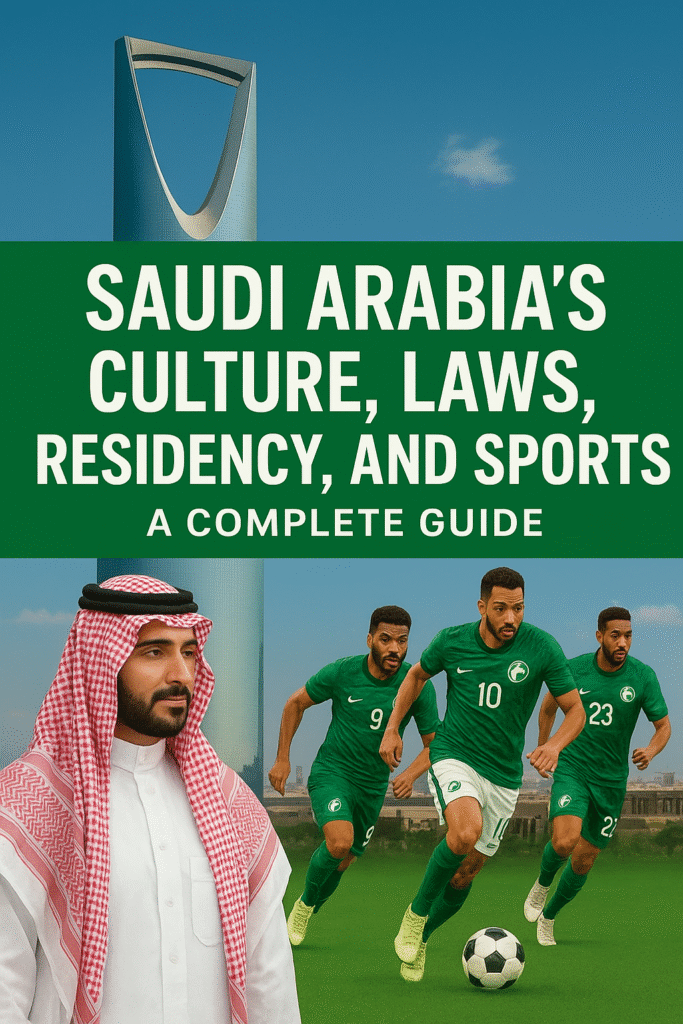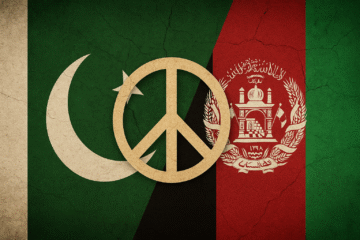Saudi Arabia is a country deeply embedded in its traditions and Islamic values. As the motherland of Islam, religion plays a significant part in shaping the culture, impacting daily life, social morals, and indeed the legal framework.

The country adheres to Sunni Islam, and its culture emphasizes modesty, respect for elders, and the significance of family. Saudi families frequently gather for celebrations, celebrate Islamic carnivals together, and place great significance on hospitality. Guests are warmly welcomed, with liberality being a crucial virtue. Traditional apparel is a visible marker of the country’s artistic identity. Men frequently wear a thobe, a long white garment, paired with a furat (headscarf) and an agar(cord). Women generally wear an Abaya, a long black cloak, frequently accompanied by a hijab or Nina. While traditional ventures remain current, ultramodern styles are sluggishly integrating into daily life, especially among the young generation. Music and art have a strong presence in Saudi culture, with traditional instruments like the oud and the rebab creating dateless warbles. Poetry, especially Nabati poetry, has been cherished for centuries and remains a famed form of expression. Though historically conservative, recent times have seen significant changes with the emergence of playhouses, musicales, and artistic carnivals, reflecting a balance between tradition and modernity. Understanding Saudi Arabia’s Laws: Saudi Arabia’s legal system is grounded in Sharia law, which derives from Islamic principles and the Quran. This frame is central to the country’s governance, affecting both felonious and civil matters. The laws emphasize strict adherence to Islamic training, and actions considered unhappily, such as public intoxication or public displays of affection, are banned. Respect for original customs and societal prospects is pivotal, especially for nonnatives. For illustration, dress codes are rigorously executed, taking modesty measures in public spaces. Alcohol is banned in the country, and penalties for medicine-related offenses are severe. Also, certain practices, such as converting non-Islamic persuasions, aren’t permitted. Recent reforms have introduced modernizations to several aspects of the legal system. Women’s rights have significantly advanced in the last decade, with women now allowed to drive, make in external choices, and share in the pool more freely. These reforms reflect the country’s sweats to balance tradition with progress under its Vision 2030 action, which aims to diversify the economy and increase global engagement. Occupancy in Saudi Arabia: Living in Saudi Arabia as an émigré requires understanding the country’s occupancy regulations. The government provides colorful visa options, including work visas, family visit visas, and tourist visas. Work visas are issued to those who have secured employment with a Saudi-based company, while family visas allow residents to bring immediate family members to the country. Tourist visas, lately introduced as part of sweats to boost tourism, allow callers to explore the country’s heritage and landmarks. For longer stays, carrying an Iqama (occupation permit) is essential. This document, issued to deportees working in Saudi Arabia, grants access to introductory services such as healthcare and banking. Backing by an employer or family member is generally needed to acquire an Drama. Saudi Arabia has also introduced the Premium Residency Program, offering foreign citizens the opportunity to live in the country without the need for a guarantor. This program includes options for endless and renewable occupancy, feeding to investors, professionals, and those seeking lesser inflexibility. Adherence to occupancy rules is essential, as violations may affect forfeitures or expatriation. Expats should also familiarize themselves with artistic practices and regulations to ensure a smooth transition into Saudi life. Sports in Saudi Arabia. Sports are an integral part of life in Saudi Arabia, reflecting both traditional pastimes and global influences. Soccer is by far the most popular sport, with the Saudi Professional League attracting both original and transnational attention. The public platoon, known as the Green Falcons, has shared several FIFA World Cups, fostering public pride and enthusiasm. Traditional sports, such as camel racing and falconry, continue to hold artistic significance and are celebrated at events like the King Abdulaziz Camel Festival. These conditions offer a glimpse into the country’s rich heritage and its connection to the desert geography. In recent times, Saudi Arabia has surfaced as a crucial player in transnational sports. The country has hosted major events, including Formula E races, heavyweight boxing matches, and the Saudi Cup, the world’s richest steeplechase race. Investments in sports structures and hookups with global associations punctuate the government’s commitment to establishing Saudi Arabia as a mecca for sports and entertainment under Vision 2030. Likewise, initiatives to promote physical exertion among citizens have gained traction, encouraging participation in recreational sports and fitness programs. This shift reflects a growing mindfulness of the significance of health and well-being in the country. Conclusion for Saudi Arabia Guide: Saudi Arabia offers a unique mix of tradition and modernity, making it a fascinating destination for residents and visitors likewise. Its culture is deeply embedded in Islamic values, emphasizing family, respect, and hospitality. The legal system, while strict, reflects these values and is gradually evolving to accommodate modernization. Occupancy in Saudi Arabia requires understanding its visa and backing conditions, with options available for both short-term and long-term stays. Sports, both traditional and transnational, play a vital part in the country’s identity and its bourne on the global stage. As the country continues to transform under Vision 2030, it presents openings for those who seek to explore its rich history, experience its artistic elaboration, or become part of its growing global presence.



0 Comments